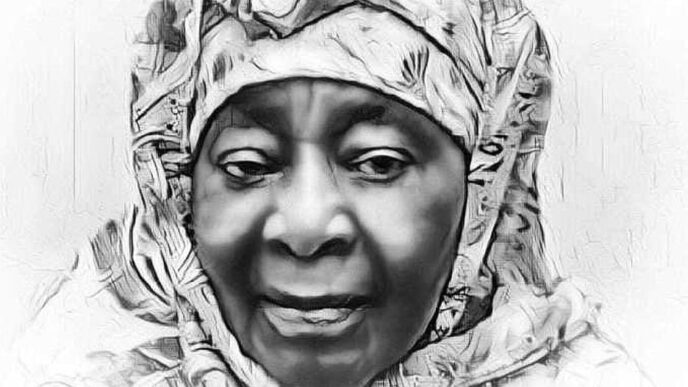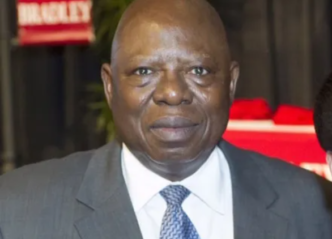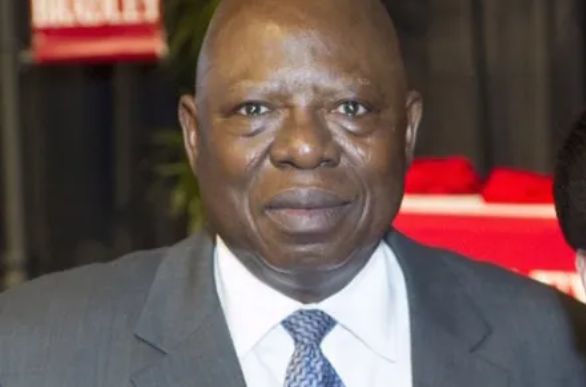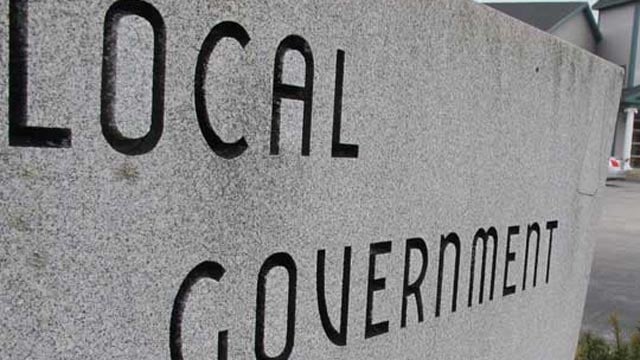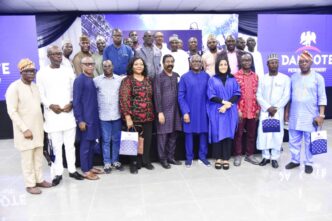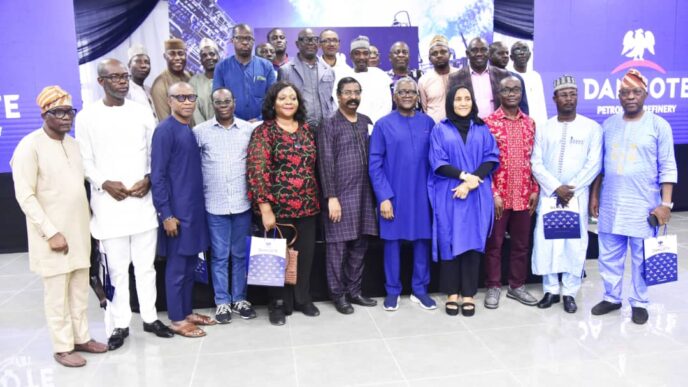Corruption is a global phenomenon, and no society is immune to it. According to the International Institute for Democracy and Electoral Assistance (I-IDEA), while corruption is universally manifest, the challenge is particularly severe in Africa. Its impacts are catastrophic and colossal, leading to massive unemployment, abject poverty, national protest and incessant conflicts. These issues prompted the African Union (AU) leadership in 2003 to devise various strategies against this menace, one of which is the annual commemoration of Africa’s Day Against Corruption.
The leading African anti-corruption normative instrument, the African Union Convention on Preventing and Combating Corruption (AUCPCC), was adopted in Maputo, Mozambique, on July 11, 2003, and came into force in 2006. These developments paved the way for the establishment of the African Union Advisory Board Against Corruption, currently headquartered in Arusha, Tanzania. Recognizing this, July 11 was unanimously agreed upon by the AU leadership as Africa’s Anti-Corruption Day. Thus, today marks another significant milestone in Africa’s ongoing struggle against corruption.
Agreed upon by the AU in 2017, ‘’Africa Anti-Corruption Day’’commemorates the adoption of the AUCPCC. The convention represents a milestone in the continent’s efforts to address the pervasive problem of corruption, laying down a comprehensive framework for deepening the culture of transparency, accountability, and integrity within both public and private sectors. Each year, Africa Anti-Corruption Day provides an opportunity to reflect on the achievements and inadequacies in the struggle against corruption in Africa. It encourages governments, civil society, the private sector, and citizens to engage in constructive dialogue, share good practices, and develop innovative strategies to strengthen anti-corruption measures and integrity systems in Africa.
According to the United Nations Economic Commission for Africa (UNECA), corruption remains one of the formidable obstacles to Africa’s socio-economic and governance transformations, affecting good governance, economic growth, and the welfare of its people. Corruption erodes public trust, stifles economic opportunities and growth, and exacerbates inequality and conflicts. Unlike the robust economic structures of developed countries, the economies of many African nations are weak and incapable of withstanding the effects of corruption, which manifest as abject poverty, massive youth unemployment, violent armed conflicts, and terrorism. Africa Anti-Corruption Day serves as a reminder of the commitment made by African Heads of State and Government to combat corruption through robust policies, legal frameworks, political commitment, and collaborative efforts. While this leadership commitment is commendable, the African civil society has not been deliberately encouraged to fully embrace the commitment against corruption, thereby leaving a strategic gap in the struggle against corruption in Africa.
Advertisement
According to the Executive Chairman of the Nigeria’s Economic and Financial Crimes Commission (EFCC), Mr. Ola Olukoyede, public corruption is the bane of development in Africa. He decried the magnitude of stealing by corrupt elements in Nigeria, especially stealing of unspent allocation in government agencies. According to him, “When I look at some case files and see the humongous amount of money stolen, I wonder how the country is still surviving. If you see some case files you will weep. The way they move unspent budget allocation to private accounts in commercial banks before midnight at the end of a budget circle, you will wonder what kind of spirit drives the corrupts’’. This experience is similar across the African Union member states with few exemptions.
The cost of corruption in Africa is staggering. It is estimated that Africa loses billions of dollars annually to illicit financial outflows, resources that could otherwise be invested in strategic areas such as healthcare, industrialization, education, and infrastructure. According to reports from the AU and UNECA, Africa loses approximately $50 billion each year to illicit financial activities. This amount exceeds the total development aid, national budget support, and grants that Africa receives from developed countries. This financial hemorrhage stifles growth, discourages investment, and perpetuates a cycle of dependency on external development partners and institutions, including the Bretton Woods Institutions, China, and many others.
Socially, corruption breeds disillusionment and apathy among citizens. When people perceive their leaders and institutions as corrupt, their willingness to engage in civic activities and uphold the rule of law diminishes. This erosion of trust can lead to social unrest, as seen in numerous protests and movements across the continent demanding accountability and justice. A recent and relevant example is the ongoing youth protest in Kenya.
Advertisement
Since the inception of Africa Anti-Corruption Day, several African countries have made notable strides in strengthening anti-corruption mechanisms, but these efforts are not without challenges. These include the establishment of independent anti-corruption commissions, implementation of stringent anti-corruption laws, and the promotion of transparency in public administration. Over the past year, several African nations have made significant progress in enhancing their anti-corruption frameworks. Countries like Botswana and Rwanda continue to lead by example with robust anti-corruption agencies, strong legal frameworks, and political commitment that have substantially reduced corruption levels.
Information and Communication Technology (ICT) advancements have been leveraged to promote transparency, such as e-governance systems that reduce opportunities for corrupt practices in some African countries like Rwanda and Kenya. For instance, in Kenya, the e-Citizen platform allows citizens to access government services online, reducing opportunities for corrupt interactions. Additionally, mobile money services such as M-Pesa in Kenya and Tanzania have revolutionized financial transactions, reducing the need for cash and minimizing opportunities for bribery and embezzlement. These technological advancements not only enhance transparency but also empower citizens to demand better governance.
Rwanda’s anti-corruption drive has been globally lauded for its zero-tolerance approach rooted in e-governance, resulting in significant improvements in public sector transparency and accountability. In contrast, countries like Nigeria, the Central African Republic (CAR), and the Democratic Republic of the Congo (DRC), to reference but a few still rely on manual collection of toll-gate fees at their local and international airports, a practice that encourages the use of official discretion leading to corruption. Although Nigeria’s Economic and Financial Crimes Commission (EFCC) and Independent Corrupt Practices and Other Related Offences Commission (ICPC) have made considerable efforts to investigate and prosecute high-profile corruption cases, these efforts still need improvement. Similarly, Kenya’s Ethics and Anti-Corruption Commission (EACC) continues to play a pivotal role in addressing corruption at various levels of government.
Despite these efforts, the struggle against corruption in Africa is far from over. Corruption continues to evolve, manifesting in new and complex forms. Weak public institutions, unimpressivepolitical commitment, weak civil society activism against corruption, and inadequate anti-corruption legal frameworks are significant barriers that need to be addressed. The informal sector, which constitutes a large portion of Africa’s economy, remains particularly vulnerable to corrupt practices.
Advertisement
In the digital age, new corruption challenges have emerged, such as cyber fraud and the misuse of digital platforms for corrupt activities. Africa’s public administration is currently struggling with these new forms of corruption. Advanced technological measures are therefore critical to combating these new forms of corruption in Africa. Embracing technology and innovation is paramount in the quest to combat corruption.
Civil society organizations and the media play an indispensable role in the fight against corruption. They act as watchdogs, holding public officials accountable and raising awareness about the detrimental effects of corruption. Empowering these entities with the necessary resources and legal protections is crucial for ensuring transparency and accountability. At the heart of the fight against corruption is the role of the citizens. Public participation and awareness are crucial in creating a culture of accountability and integrity. Citizens must be empowered to report corrupt activities without fear of retribution and be actively involved in demanding transparency from their leaders. Education and awareness campaigns are essential in this regard. By educating the youth about the detrimental effects of corruption and instilling values of honesty and integrity, we can cultivate a generation committed to rejecting corrupt practices. Civil society organizations play a pivotal role in these efforts, working tirelessly to hold leaders accountable and advocate for systemic changes. Political and leadership commitment is strategic in all these efforts.
In conclusion, while traditional approaches to fighting corruption in Africa, excluding digital measures, have made limited impacts, the time has come for Africa to embrace ICT and the will of its citizens in this fight. The anti-corruption measures of the African Union and Regional Economic Communities should be strengthened to provide technical assistance to member states in their efforts to combat corruption. The African Union Advisory Board against Corruption could be likened to a security dog that has no teeth—it can only bark at intruders when permitted. Establishing anti-corruption institutions and enacting anti-corruption laws are means to an end, not ends in themselves. Africa must stop celebrating a mere Day Against Corruption and focus on impactful anti-corruption strategies. It is time we stop romanticizing anti-corruption efforts and instead take meaningful actions against corruption on the continent. Furthermore, the definition of corruption in Africa should be reviewed and expanded to include crimes against humanity, and specialized anti-corruption courts should be established at all levels of governance in Africa. On this note, African leadership and civil society should support the ongoing campaign for an International Anti-Corruption Court.
As we commemorate the 2024 Anti-Corruption Day in Africa today, it is imperative for all stakeholders and lovers of Africa to reaffirm their commitment to this cause. Governments, private sectors, civil society, and international partners must work collaboratively to create an environment where corruption cannot thrive. Africa Anti-Corruption Day is not just a day of reflection but a call to action. It is a reminder that the fight against corruption requires unwavering dedication and collective effort. As we look forward to the future, let us remain steadfast in our resolve to build a transparent, accountable, and prosperous Africa for generations to come. Together, we can achieve the impossible and create a brighter future for Africa.
Advertisement
Ikubaje is a Governance, Anti-Corruption and Development Scholar. He also works on Human Rights and Transitional Justice. He can be reached at j[email protected].
Advertisement
Views expressed by contributors are strictly personal and not of TheCable.





